A husky is fully grown at around 1 to 1.5 years of age. What age is a husky fully grown.
| Name of the Quick Fact | Data Itself |
|---|---|
| Physical Maturity | 12-15 months |
| Full Height | 18-24 months |
| Weight Stabilization | Usually by 18 months |
| Skeletal Development | Complete by around 18 months |
| Muscular Development | May continue up to 2 years |
| Emotional Maturity | 2-3 years (varies by individual dog) |
| Sexual Maturity | 6-12 months |
| Considered Adult | By 1 year of age |
| Common Adult Weight Range | 35-60 pounds (16-27 kg) |
| Common Adult Height at the Withers | 20-24 inches (51-61 cm) |
| Breeds Included | Siberian Husky, Alaskan Husky |
| Size Category | Medium to Large Breed |
During the puppyhood and early development stage, Huskies undergo a rapid growth phase from birth to about six months. Proper nutrition plays a vital role in supporting this growth, with a focus on providing high-quality puppy food to meet their specific developmental needs.
Adequate protein, fat, and essential nutrients contribute to healthy bone and muscle development. Additionally, socialization during this critical period is essential for shaping a well-adjusted adult Husky.
Exposure to various environments, people, and other animals helps them become confident and well-rounded companions. It’s also crucial to introduce basic training and establish routines early on to lay a strong foundation for their future behavior and well-being.
Proper nutrition is crucial for supporting rapid growth in Husky puppies, with a focus on high-quality puppy food containing essential nutrients for healthy development.
Socialization during this stage is important for shaping a well-adjusted adult Husky, as exposure to different environments, people, and animals contributes to their confidence and adaptability.
What age is a husky fully grown
Introducing basic training and establishing routines early on helps lay a strong foundation for the puppy’s future behavior and overall well-being.
To dive deeper into the optimal care for your Husky, including their unique eye care needs, explore our comprehensive guide on the matter. Ensure your furry companion's health is safeguarded with the right insurance by visiting Eye Care Insurance for Huskies.

The Transitional Phase: 6 to 12 Months
During the transitional phase from 6 to 12 months, Huskies experience significant physical and behavioral changes. It’s a time when they outgrow their puppyhood but are not yet fully grown adults.
This phase requires adjustments in their diet and exercise routines to accommodate their changing needs. For instance, as their growth rate slows down, it’s essential to shift from puppy-specific food to a high-quality adult dog diet to support their maturing body.
Additionally, since their energy levels remain high, regular exercise and mental stimulation are crucial to keep them physically and mentally healthy during this phase. What age is a husky fully grown? A Husky is still developing physically and mentally during this stage.
Therefore, careful attention to their evolving nutritional and activity requirements is pivotal for ensuring their overall well-being and smooth transition into adulthood.
Transitioning from puppyhood to full-grown adult requires changes in diet and exercise.
They need a shift from puppy-specific food to high-quality adult dog diet to support their changing body.
What age is a husky fully grown
Regular exercise and mental stimulation are critical to keeping them healthy.
To ensure your young Husky thrives, adapting their diet and exercise routines during this growth phase is crucial. Discover additional essential care tips in our in-depth article on the unique considerations for proper Siberian Husky grooming.
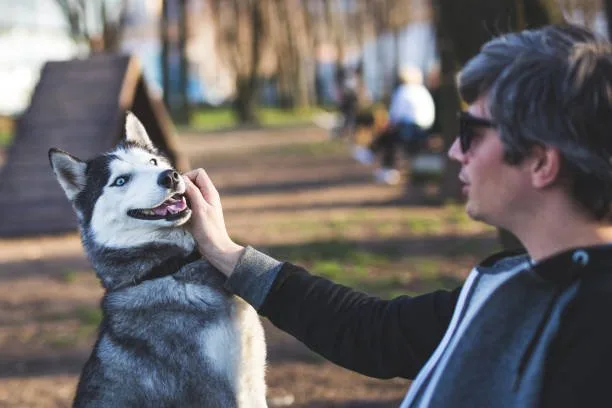
Reaching Full Size: 12 to 18 Months
What age is a husky fully grown
At 12 to 18 months, most Huskies reach their full physical size, although they may continue to fill out and add muscle mass during this period. Proper nutrition is crucial during this stage to support healthy growth and development.
It’s essential to provide a balanced diet that meets the energy needs of a growing Husky while preventing excessive weight gain. Adequate exercise is also important to help them build muscle and maintain overall fitness.
Regular veterinary checkups are vital to monitor your Husky’s growth and ensure they are developing at a healthy rate. These visits also offer an opportunity to discuss any concerns about their growth and receive guidance on adjusting their care as they reach full size..
To discover more about canines and their growth, delve into the fascinating world of crossbreeds, such as the Husky mixed with a German Shepherd. Explore the unique traits and development milestones of this particular mix to broaden your understanding of canine development.
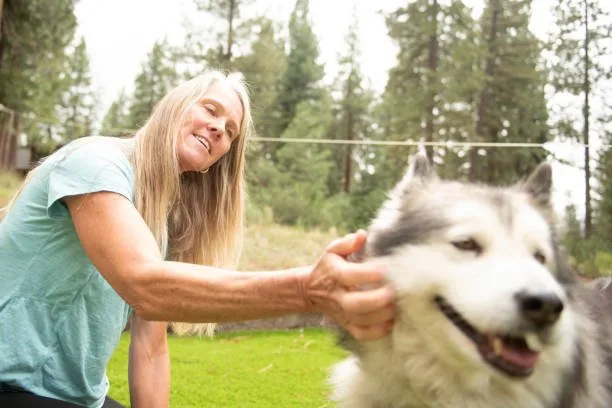
Emotional and Mental Maturity
Huskies may reach their full physical size by 1 to 1.5 years old, but their emotional and mental maturity typically takes longer, often not fully developing until they are 2 to 3 years old. During this period, Huskies may exhibit adolescent behaviors such as increased independence, testing boundaries, and occasional stubbornness.
It’s important for owners to remain patient and consistent in training and socialization efforts during this stage to help their Husky develop into a well-adjusted adult. Additionally, providing mental stimulation and engaging activities can support their cognitive and emotional growth, contributing to a more balanced and contented pet.
What age is a husky fully grown.
It’s crucial for owners to be mindful of their Husky’s behavioral changes and adapt their training approaches to accommodate their pet’s evolving emotional and mental needs.
Understanding the growth stages of Huskies is crucial for their development. Delve deeper into the best practices for training your Husky from a young age by reading our comprehensive guide, The Ideal Age to Begin Husky Training.
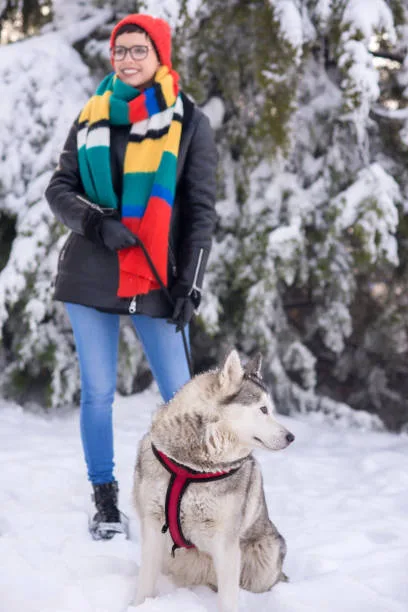
The Importance of Regular Veterinary Checkups
Regular veterinary checkups play a crucial role in ensuring the overall well-being of your husky. These visits are essential for monitoring your husky’s growth, addressing any health concerns, and ensuring proper development.
Veterinarians can assess your husky’s weight, height, and overall physical condition to determine if they are growing at a healthy rate. Additionally, these checkups provide an opportunity to discuss any behavioral changes, dietary needs, or exercise requirements to support your husky’s development.
By staying proactive with regular veterinary visits, you can prioritize the long-term health and happiness of your beloved husky companion.
Regular veterinary checkups are essential for:
- Monitoring your husky’s growth and development.
- Identifying and addressing any health concerns early on.
- Discussing behavioral changes, dietary needs, and exercise requirements.
.
To discover more about canine hybrids and their health traits, delve into the intricacies of Husky Poodle mixes and the aspect of hypoallergenic qualities. Explore our detailed article, "Is A Husky Poodle Mix Hypoallergenic?" for a comprehensive understanding.
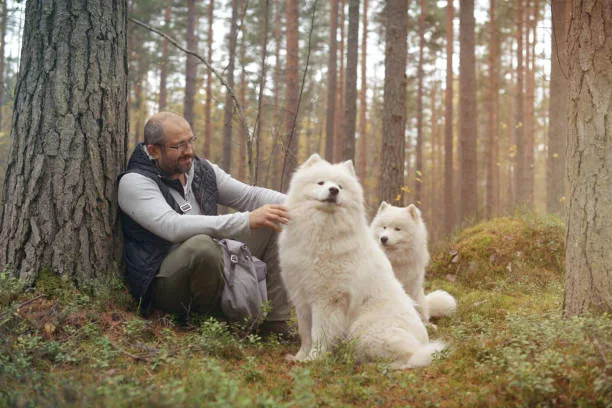
Adapting Your Husky's Care as They Grow
On Quora about: What age is a husky fully grown
As your Husky grows and matures, it’s crucial to adapt their care, training, feeding, and exercise regimens to cater to their changing needs. One of the key aspects to consider is their diet and nutrition.
Adjusting the feeding schedule and portion sizes in accordance with their age and activity levels is essential for maintaining their health and energy. Additionally, modifying their training approach to align with their increasing maturity is important.
Introducing new commands and challenges can keep them mentally stimulated and responsive. Furthermore, as Huskies are known for their energetic nature, adjusting their exercise routines to accommodate their growing strength and endurance is vital.
This can involve longer walks, more interactive playtime, and possibly engaging in activities like hiking or agility training to keep them engaged. Adapting your Husky’s care as they grow ensures that they continue to thrive both physically and mentally..
To ensure your Husky receives the best possible care throughout its development, it is imperative to adapt their routines to match their changing needs. Discover comprehensive strategies for nurturing a robust and well-adjusted hybrid, specifically when managing the nuances of a Great Dane-Husky mix, by exploring our detailed guide.
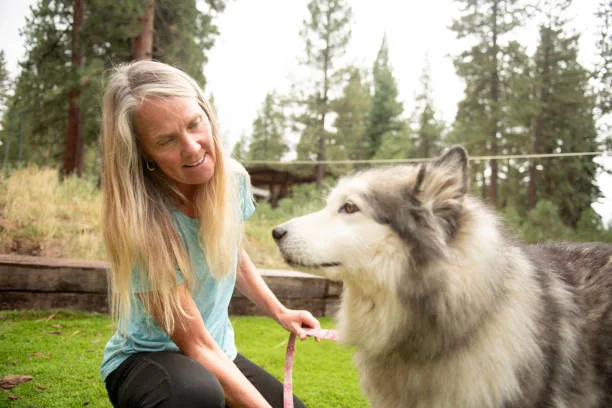
Recognizing and Managing Growth-Related Health Issues
Reddit What age is a husky fully grown
Huskies, like all dog breeds, are prone to certain health issues as they grow. It’s important for owners to be aware of these common conditions and know how to effectively manage them for their pet’s well-being.
What age is a husky fully grown. One common health issue that Huskies may face as they reach full size is hip dysplasia, a condition where the hip joint doesn’t develop properly, leading to discomfort and reduced mobility.
It’s crucial to watch out for symptoms such as limping or difficulty getting up, and to consult with a veterinarian for proper diagnosis and treatment. Additionally, as Huskies are active dogs, they may be susceptible to joint problems and arthritis, especially as they age.
Providing proper nutrition and exercise, as well as maintaining a healthy weight, can help manage these issues. Another common health concern is cataracts, which can affect a Husky’s vision in their later years.
Regular eye checks and prompt medical attention can help in early detection and appropriate management. Moreover, Huskies are predisposed to skin conditions such as allergies and dermatitis, requiring vigilant grooming and skincare routines.
It’s essential for owners to monitor their Husky’s skin health and seek veterinary advice if any problems arise. By staying informed about these growth-related health issues and being proactive in their management, owners can ensure their Husky enjoys a healthy and comfortable adult life..
Understanding the unique health concerns of Huskies is only the beginning. Dive deeper into the fascinating world of canine genetics and discover the traits of a Husky-Corgi mix by reading our detailed exploration entitled "What Is A Husky Mixed With A Corgi."
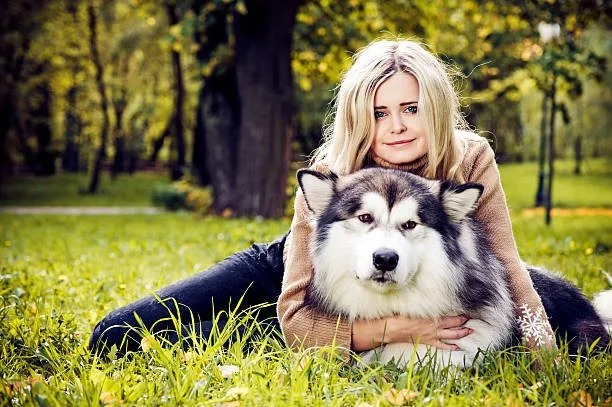
The Role of Genetics and Nutrition in Growth
The growth of a husky is significantly influenced by both genetics and nutrition. Genetics play a crucial role in determining a husky’s potential size, while nutrition throughout its development stages can either support or hinder its growth rate and size.
It’s important to understand that genetic background sets the blueprint for a husky’s growth, impacting factors such as height, weight, and overall build. While genetics provide the baseline, the quality and balance of nutrition received during crucial development stages can either support healthy growth or lead to potential growth issues.
Thus, it is pivotal for husky owners to provide a well-rounded diet that meets their nutritional needs, considering factors such as protein, vitamins, and minerals that contribute to healthy growth. Ensuring an optimal balance of genetics and nutrition can lead to a healthy, well-developed husky.
American Kennel Club: What age is a husky fully grown
By understanding the interplay between genetics and nutrition, husky owners can proactively manage their pet’s growth and contribute to their overall well-being. Careful attention to both aspects can help prevent growth-related issues and promote the husky’s healthy development into adulthood.
To gain a deeper understanding of the captivating genetic interplay and dietary impacts on hybrid vigor, delve into the world of the Husky mix—specifically the Shiba Inu crossed with a Husky. Explore our comprehensive article, The Intriguing Crossbreed of Shiba Inu and Husky, for insightful details on this unique canine combination.
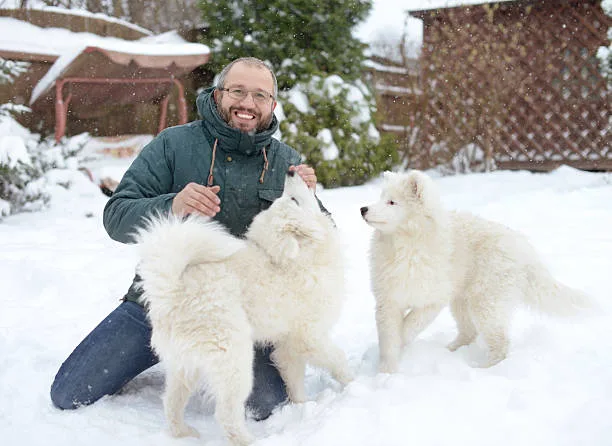
Adult Husky Growth Milestones and Health
Adult Huskies typically reach their full size between 12 to 18 months of age. At this stage, Siberian and Alaskan Huskies generally weigh between 35 to 60 pounds for females and 45 to 70 pounds for males, with a height ranging from 20 to 23.5 inches for females and 21 to 24 inches for males.
It’s crucial to monitor a full-grown Husky’s health through regular veterinary checkups, starting from this stage. Spaying or neutering is commonly recommended at this age to prevent unwanted litters and certain health issues.
- When it comes to exercise, adult Huskies need consistent physical activity to maintain their physical and mental well-being.
Daily walks, interactive play, and opportunities for running are essential to meet their exercise needs.
- Socialization remains important for mature Huskies to ensure they are well-adjusted and behave appropriately in various settings. Introducing them to new experiences and environments can help prevent behavioral issues.
By addressing these milestones and health considerations, owners can ensure that their adult Huskies lead healthy and fulfilling lives.
For those inspired by the strength and beauty of huskies on the silver screen, selecting the perfect name befits their majestic presence. Explore our curated list of top movie-inspired husky names to find a title worthy of your canine companion.
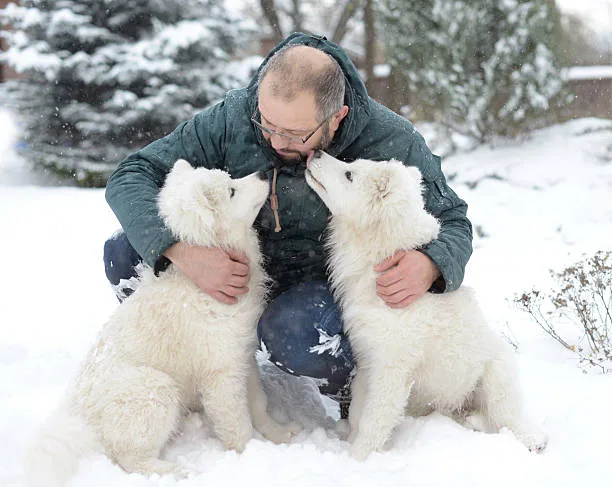
Optimizing Diet and Nutrition for Husky Development
When it comes to optimizing diet and nutrition for Husky development, it’s crucial to consider their dietary needs through different growth stages. As a Husky transitions into adulthood, it’s essential to adjust their diet to maintain energy levels and prevent obesity while ensuring proper joint care.
What age is a husky fully grown? Most Huskies reach their full physical size between 12 to 18 months, although they may continue to fill out and add muscle mass as they mature.
During this stage, it’s important to provide a balanced diet that supports their energy requirements while also promoting healthy weight management.
In addition to a well-rounded diet, mental stimulation plays a significant role in a Husky’s eating behavior. Incorporating activities that challenge their cognitive abilities, such as food puzzles or interactive feeding toys, can encourage healthy eating habits and prevent excessive speed eating.
By carefully tailoring the adult Husky’s diet to meet their nutritional needs and incorporating mental stimulation, owners can help promote overall well-being and longevity for their beloved pet.
To dive deeper into ensuring your Husky maintains healthy eating habits, discover practical strategies in our featured article, "Managing Your Husky's Speedy Eating Habits." Unravel methods to curb rapid consumption and promote digestive well-being for your energetic companion with a simple visit to our dedicated guide on slowing down your Husky's eating pace.
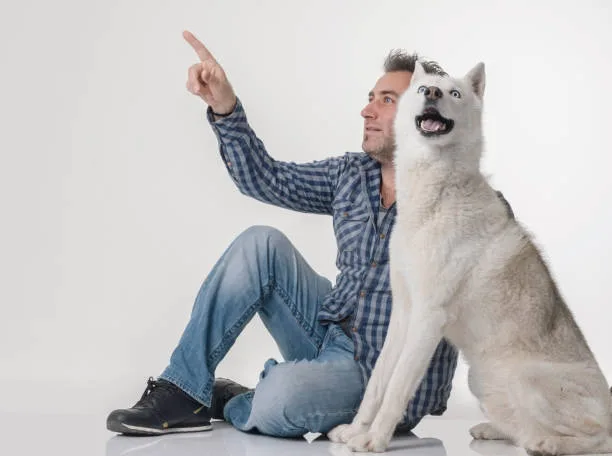
Behavioral Training and Mental Stimulation for Huskies
Huskies are known for their high energy levels and independent nature, which can pose challenges for behavioral training. It’s important to understand that the typical adult Husky behavior involves a need for regular physical and mental stimulation to prevent boredom and destructive tendencies.
To address this, providing consistent training is essential to manage their energy and assertive instincts.
One effective approach is to engage in activities that offer mental stimulation, such as puzzle toys, interactive games, and obedience training. These not only keep Huskies engaged but also channel their intelligence and energy into positive outlets.
In addition to mental exercises, regular physical activities like long walks, runs, or agility training are crucial to fulfill their exercise needs and prevent behavioral issues arising from pent-up energy.
Moreover, socialization remains an essential aspect of a mature Husky’s behavioral development. Exposure to various environments, people, and animals helps them become well-adjusted and less prone to anxiety or aggression.
Consistent and positive social experiences play a significant role in fostering good behavior and reducing the likelihood of behavioral problems.
Consistency is key in training a mature Husky, and setting clear boundaries through positive reinforcement techniques is crucial. By establishing a routine that includes mental and physical activities, along with structured training sessions, owners can effectively manage their Husky’s behavior and ensure a happy, well-adjusted companion.
It’s important to remember that while huskies are fully grown by 12 to 18 months, their ongoing mental and behavioral development requires continued attention and training.
To explore further nuances in the canine world, consider comparing the stature of another distinguished breed. Delve into our detailed comparison of the Husky's dimensions relative to its counterpart, the German Shepherd, by examining the article "Husky versus German Shepherd: A Size Comparison."
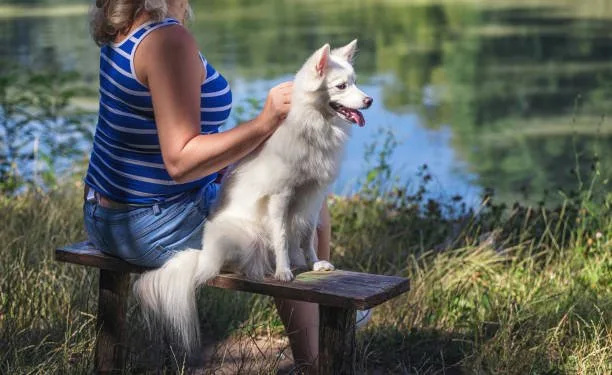
Senior Husky Health Management and Care
As Huskies enter their senior years, their care needs change. The expected lifespan of a Husky ranges from 12 to 15 years, with some individuals living even longer.
However, as they age, senior Huskies may encounter common health issues such as arthritis, vision and hearing loss, and dental problems. Regular veterinary checkups become crucial to monitor and address these age-related concerns and maintain the Husky’s overall well-being. Senior Huskies have specific grooming needs that require careful attention.
Their coat may become thinner, and they may develop dry skin, so brushing and grooming should be adjusted to accommodate these changes. Additionally, older Huskies may need help maintaining their mobility, making it essential to keep their nails trimmed and provide regular dental care to avoid discomfort and potential health issues. Adjusting the exercise regimen of senior Huskies is essential.
While they may not be as active as they were in their younger years, they still require regular, gentle exercise to keep their muscles toned and maintain a healthy weight. Low-impact activities such as short walks and light playtime can help meet their exercise needs without causing strain on their aging bodies. The importance of joint care cannot be understated for senior Huskies.
Providing them with comfortable bedding and ensuring that they have easy access to their favorite spots can help reduce joint pain. Additionally, supplements or medications recommended by a veterinarian can be beneficial in supporting joint health and maintaining the mobility and quality of life of senior Huskies..
To discover more about the resilience and regenerative abilities of animals, delve into our exploration of whether bearded dragons can magically restore their tails. Find this fascinating read on the surprising truths behind reptilian regeneration "Can Bearded Dragons Regrow Tails? The Surprising Truth" and enrich your knowledge about these captivating creatures.
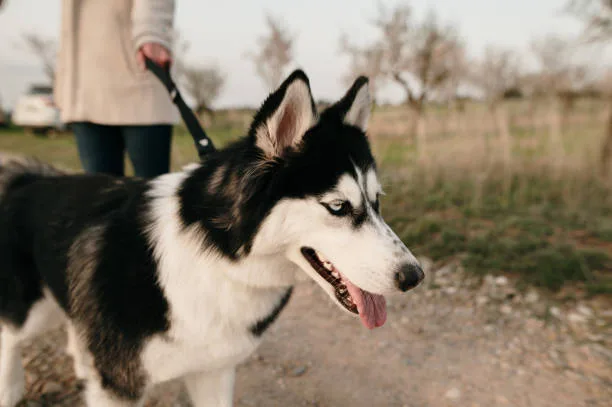
Preventative Measures for Husky Health and Longevity
As a responsible Husky owner, it’s crucial to take preventative measures to ensure your pet’s health and longevity. Common health issues in adult Huskies such as hip dysplasia, cataracts, and skin conditions can be addressed through regular veterinary check-ups and a well-balanced diet.
Regular grooming is essential for maintaining a healthy coat and skin, preventing matting, and identifying any lumps, bumps, or skin irritations early.
This can also help in monitoring your Husky’s overall health and well-being, allowing you to address any issues promptly.
Maintaining an appropriate weight is vital for Husky health. Obesity can lead to various health problems and put strain on their joints.
By providing balanced nutrition and regular exercise, you can help your Husky maintain a healthy weight and overall well-being.
Balancing your Husky’s energy levels with their physical and mental health needs is crucial. Engage them in regular exercise and mental stimulation activities to keep them happy and healthy.
Additionally, ensure that they have a stimulating environment to prevent boredom and related behavioral issues.
Early detection and prevention of health problems play a significant role in ensuring your Husky’s longevity and quality of life. By recognizing any changes in behavior, appetite, or physical condition early on, you can seek veterinary care and address potential health issues before they escalate.
To delve deeper into tailored care strategies that cater to the unique needs of a Chihuahua-Husky mix, explore our comprehensive guide. Embark on a journey to guarantee your furry friend's utmost wellness by visiting "Chihuahua Husky Mix: Ensure Your Pet’s Optimal Care!"Chihuahua Husky Mix: Ensure Your Pet’s Optimal Care!.
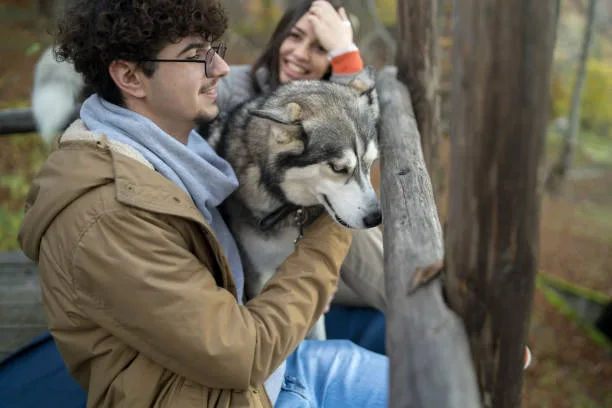
Conclusion: Ensuring a Happy, Healthy Adulthood
As you navigate your Husky’s journey from puppyhood to adulthood, it’s essential to prioritize their ongoing care to ensure a happy and healthy life. Understanding what age is a husky fully grown provides valuable insights into their development.
Proper nutrition, exercise, and regular veterinary checkups play a crucial role in supporting your Husky’s growth and overall well-being.
It’s important to recognize that while your Husky may reach their full physical size by 12 to 18 months, they continue to mature emotionally and mentally until they are 2 to 3 years old.
By adapting their care, training, feeding, and exercise regimens to align with their growth stages, you can provide the most supportive environment for your Husky’s development. Regular veterinary checkups are essential for monitoring their growth, health, and ensuring they receive any necessary care.
Recognizing and managing growth-related health issues, considering the role of genetics and nutrition in their growth, and optimizing their diet and nutrition are all key aspects of ensuring a happy and healthy adulthood for your Husky.
Remember, your ongoing dedication to understanding and meeting the needs of your fully grown Husky will lay the foundation for a fulfilling and thriving life for your beloved pet.

Leave a Reply